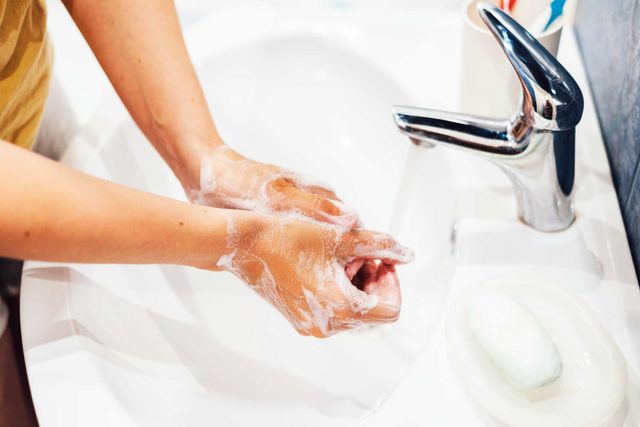
They switch cleansers
Winter isn’t the season for antibacterial or deodorant soaps, which can leave your skin parched, says dermatologist Christine Choi Kim. A better bet: a creamy, hydrating cleanser or an oil-based cleanser that put moisture back into the skin.
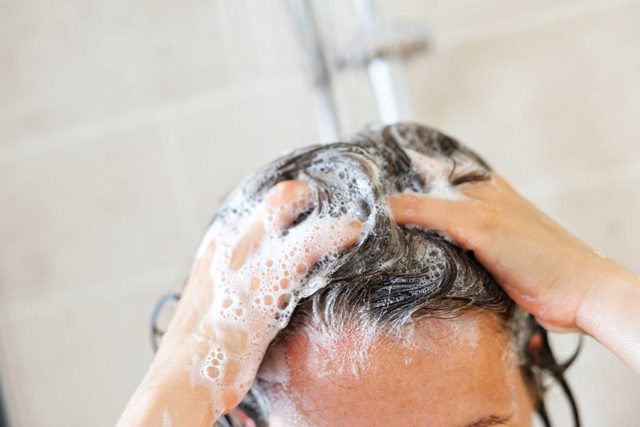
They take short, lukewarm showers
“It’s tempting to take a long, hot shower when it’s freezing outside, but that’s the exact opposite of what your skin needs,” says Philadelphia dermatologist Nazanin Saedi. Hot water can strip natural oils from your skin, causing it to dry out. Instead, Dr. Saedi recommends keeping water temps on the tepid side and making it quick (5 to 10 minutes, tops) when you’re in the tub.
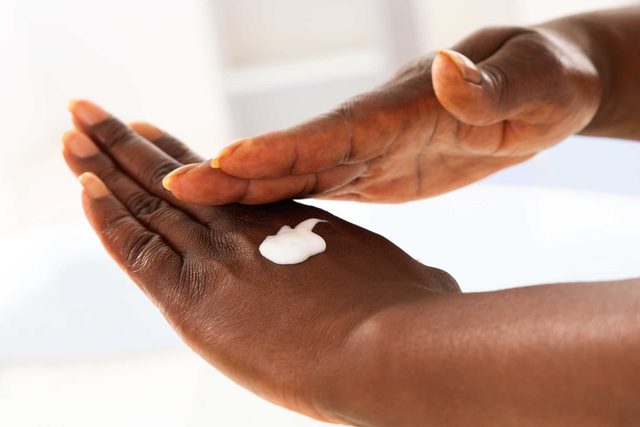
They opt for ultra-hydrators
Your regular runny moisturizer isn’t going to cut it in the winter. “Make sure you’re using a cream, not a lotion,” NYC dermatologist Doris Day, told Allure. Ingredients to look for include hyaluronic acid and glycerin, which Dr. Kim says will make moisturizers more effective, but not necessarily heavier. Here’s what a top facialist recommends you do in the winter for soft, hydrated skin.

They moisturize regularly
Twice a day, both morning and night. Enough said. Moisturizing is especially important for eczema. Here’s how to treat a pesky eczema flare-up.

They moisturize at the right time
Studies show that moisturizing immediately after bathing is significantly better than not applying moisture at all or applying it long after showering, NYC dermatologist Joshua Zeichner, told Allure. In the winter months, stash your body moisturizer in (yes, in!) your shower so you can apply it directly to damp skin before you step out of the steam. Another option: Switch to an in-shower body lotion like Nivea In-Shower Body Lotion or Jergens Wet Skin Moisturizer.
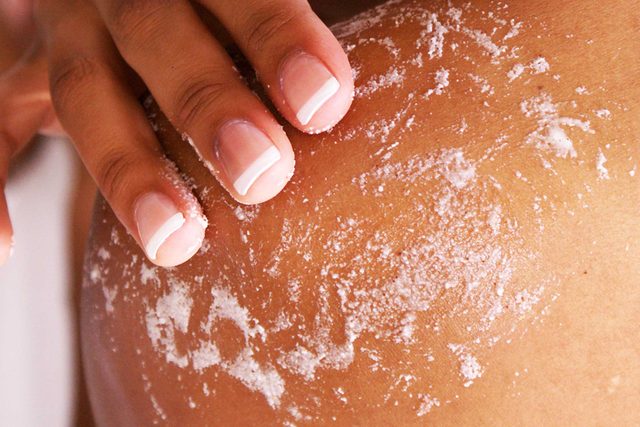
They scale back on scrubs
Exfoliating dry skin makes it look more human and less snakelike in the short term. But scrubbing daily causes inflammation that makes dry skin even drier (and flakier, and itchier) over time. If you exfoliate just once a week—and prevent irritation by washing with a creamy, hydrating cleanser before you scrub—your skin will look smoother in the long run, Dr. Zeichner told Allure.

They use sunscreen every single day
“Sunscreen is absolutely a must in wintertime,” says Dr. Kim. Damaging ultraviolet rays are present year-round, even on cloudy days. The snow reflects UV rays as well (especially at higher altitudes), so she advises being extra vigilant about protecting your skin while participating in winter sports like skiing and snowboarding. Check out the sunscreen mistakes you may not know you’re making.

They coddle their kisser
Skip balm at your own risk, advises Prevention. Cold wind and dry indoor heat deplete your lips’ natural protective barrier, so they can’t hang on to the water they need to stay soft and smooth (plus, your lips have no oil glands of their own to keep them hydrated). Simple solutions like petroleum jelly can create a protective coating that will prevent and treat chapped lips. Avoid licking your lips too, since the enzymes in saliva can increase irritation, causing swelling and even cracking, NYC dermatologist Jessica Weiser, told the magazine.
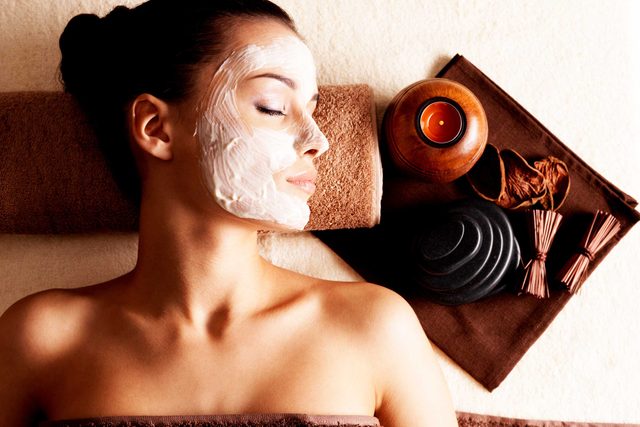
They use sleep masks
Overnight masks create a permeable seal on top of your skin that makes anything underneath it penetrate better, Dr. Day told Allure. You can apply other hydrators (serums, oils) first, then coat all of that with a thick layer of a sleep mask, and it will help everything soak in more effectively. Here are the anti-aging treatments doctors actually use.
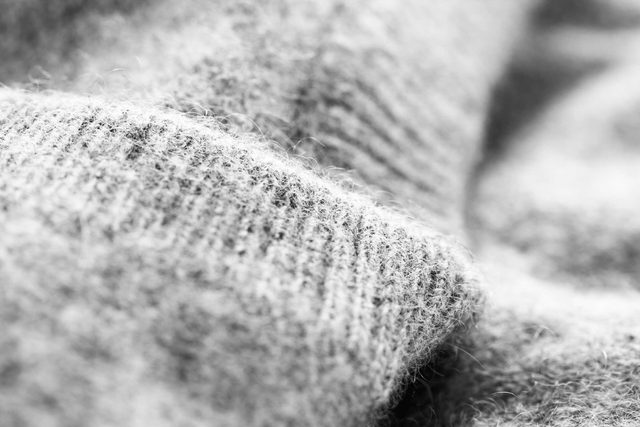
They protect skin from scratchy fabrics
A wool sweater may keep you warm, but wearing garments fashioned of rough fibers directly next to your skin can irritate sensitive skin, says Mount Kisco, New York, dermatologist David Bank. To prevent fabric friction, layer a soft cotton tee underneath to provide a protective barrier.

They eat to beat dry skin
Fatty acids like omega-3s are essential for supple skin, says Dr. Bank. If your diet is low in them, eat two servings of a fatty fish like salmon a week or take an omega-3 capsule every day.
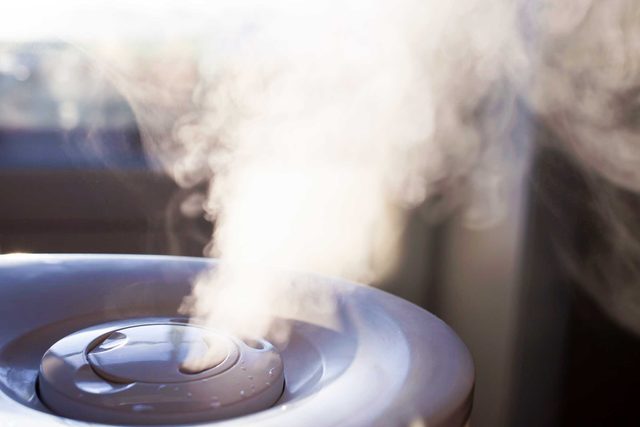
They get steamed (figuratively speaking, of course)
Humidifiers have some real beauty benefits, says Dr. Bank. “By infusing the air with moisture, they help soothe dry, itchy, cracked skin.” For tips on finding the best humidifier for you, check out this Consumers Report Buying Guide. Next, get the tricks dermatologists don’t usually give away for free.
